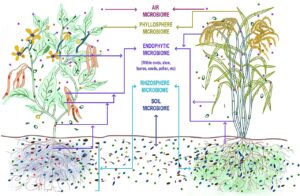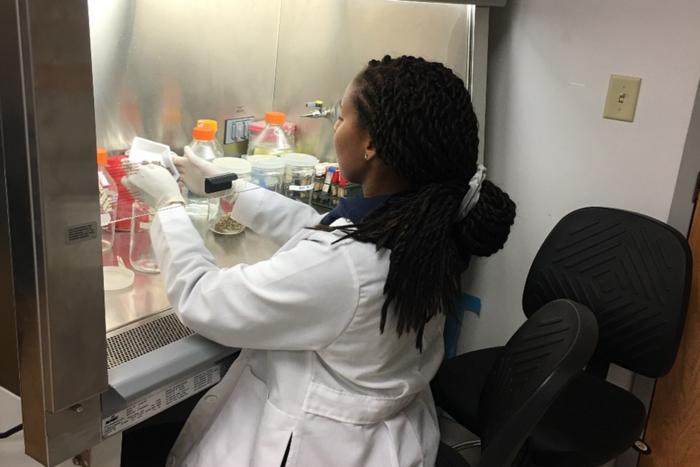Florida Atlantic University (FAU), in collaboration with Florida International University (FIU), has received a four-year, $1 million grant from the United States Department of Agriculture’s (USDA) National Institute of Food and Agriculture (NIFA) to establish South Florida’s first-of-its-kind FAU Microbiome Innovation Center.
The program, “Building Capacity in Microbiome Innovation for Plant Health, Soil Fertility, and Environmental Sustainability,” is the first workforce-development USDA-NIFA grant to a research-intensive Hispanic-serving institution, which will help address the complex challenges facing traditional agriculture and declining interest of the next generation in food, agriculture, and natural resources careers, according to Nwadiuto Esiobu, PhD, project director, a professor of biological sciences, and director of the Esiobu Microbial Biotech Laboratory within FAU’s Charles E. Schmidt College of Science.
“Growing challenges of food safety, biosecurity, and agricultural productivity, or emergence of new pathogens such as citrus greening devastation, plant invasion, climate change, and depletion of soil fertility, all have a microbiome undertone that needs to be promptly addressed by training competent cross-disciplinary professionals,” said Esiobu. “In virtually every field of science, microbiomes are emerging as key priority themes.”
Holistic plant health
The FAU Microbiome Innovation Center will develop a new curriculum in holistic plant health and embark upon creating a culture collection of indigenous beneficial bacteria whose many applications are at the nexus of environmental, agricultural, and public health. The project will integrate soft skill development, stipends, and multi-tiered mentoring with experiential learning in cutting-edge microbiomes research.
The center will engage underrepresented undergraduate and graduate students from FAU and FIU and develop an innovative curriculum that will include plant microbiomes, plant biotechnology, microbial ecology, and soil microbiology. The grant will procure a benchtop DNA sequencer to drive development of a curated collection of indigenous beneficial microbes from South Florida.

Experiential learning activities will include novel advanced knowledge in genomics, microbial interactions, ecology, soil fertility, plant bioengineering, and sequencing technologies. In addition, the project team will develop mini-pathways, field trips, workshops, summer camps, and additional specialized trainings.
Project teams
The project team includes Krish Jayachandran, PhD, co-director and distinguished university professor and co-director of the agroecology program in FIU’s College of Arts, Sciences, and Education; Evelyn Marques Frazier, PhD, university instructor; and Xing-Hai Zhang, PhD, professor, both in the department of biological sciences within FAU’s Charles E. Schmidt College of Science; and Kateel G. Shetty, PhD, research assistant professor in FIU’s College of Arts, Sciences, and Education.
The team’s combined expertise includes microbiology and microbial physiology, plant microbe interactions, biotechnology, genomics, environmental and public health, plant pests and ecology, animal health, soil fertility, and plant production with intersecting research interests in emerging fields of synthetic microbiome communities and defense against pathogens and abiotic stress.
The FAU Microbiome Innovation Center will partner with various entities including the Farm Credit Council, several USDA agencies, and FAU’s Office of Undergraduate Research and Inquiry. The integrative and collaborative nature of the program fosters an ideal space for inquiry and discovery, facilitating the convergence of different perspectives that invariably promotes understanding and learning, noted Esiobu.



